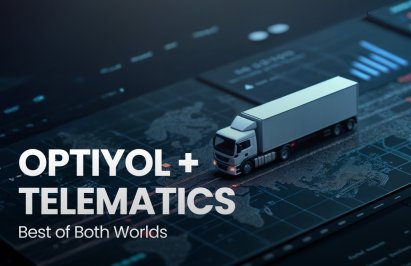
October 08, 2021


The growing demand for online shopping has recently brought e-commerce businesses that sell consumer goods onto the scene.
Today, over two billion people are purchasing goods online, and Statista indicates that e-retail sales exceeded $4.2 trillion worldwide in 2020.
The emergence of new technologies means the constant evolution of consumer practices, and we know one thing for sure - as online shopping rises, the practice of buying products from brick and mortar stores drops. Today's consumers want their purchases delivered right to their homes, and they want it fast:
We all witnessed how the Covid-19 crisis has enlarged this demand, and this is why last-mile delivery is crucial for eCommerce businesses now. Customers’ expectations are focused on how and when you deliver their product.
It molds your brand image, and it is the only way to stay competitive in today’s business ecosystem. However, residential last-mile shipping includes a complex supply chain operation.
With the rise of online shopping, a new retail model for eCommerce businesses has been born: direct to consumer (D2C) selling.
It implies selling consumer goods through online stores, without third-party logistics providers. In this way, brands sell directly to consumers with total control over the entire selling process. Although it opens ways to improve brand image without secondary logistics, it requires a holistic approach to manage daily orders to be delivered to numerous addresses.
Before the eCommerce boom, regional distribution centers were enough for efficient last-mile deliveries. However, in the era of rapid deliveries, eCommerce companies added urban hubs to their rural warehouses to improve efficiency of last-mile shipping, owing to its proximity to the customers.
This strategy has been adequate for storing goods, but daily delivery of a wide range of items requires solid last-mile optimization in logistics management. Since 90% of shoppers track the delivery status of their package and want their delivery to fit their schedule, manual planning methods fail to fulfill customer expectations in final mile logistics.
Let’s now discover the major last-mile challenges that eCommerce companies struggle with.
Last-mile delivery planning is the most challenging part of logistics, since each order requires individual management. As the demand for same-day home delivery grows, the process only gets more complicated:
Today, according to Business Insider, the last-mile delivery process accounts for 53% of shipping costs, because it must focus on supply chain visibility.
In addition, since last-mile delivery is your main touchpoint with customers, smooth operations are invaluable to your brand. After all, in such a competitive eCommerce environment, your customers might turn to your competitors after only one negative experience.
Therefore, efficient operations at every stage of final mile shipping are crucial for cost reduction. Additionally, a seamless operation implies ironing out various bottlenecks.
Here are the challenges you must deal with in last-mile logistics:
Under these circumstances, dynamic route planning is a prerequisite to overcoming last-mile delivery challenges. Moreover, only a next-generation solution can take into account all realities of your operations and help you proactively confront every bottleneck.
The main challenge when it comes to retaining customers in the eCommerce industry is always being in the right place at the right time.
This need makes manual planning nearly impossible for delivery management. Only modern technologies like Optiyol can help you keep up with the ever-growing complexity of last-mile shipping and overcome the challenges you face at every stage.
When you receive hundreds of orders today, you can use Optiyol for multi-stop route planning to make these deliveries tomorrow. While Optiyol's routing software automates and digitalizes your last-mile operations, it also optimizes routes for better delivery management.
Hence, dynamic route optimization is the key for last-mile visibility in delivery operations, because it allows you to make smart decisions to lower your costs.
Optiyol’s smart planning for last-mile logistics optimization considers each stage of the operation in order to optimize costs and eliminate late or missed deliveries. This includes dynamic fleet selection, real-time fleet tracking, order allocation, and correct vehicle-type selection that results in 15-25% savings in fleet size, as well as 5-10% in mileage costs.
While optimizing your resources allows you to serve more customers with lower costs, it also enables you to protect the environment with reduced emissions. Hence, with the right resources and routes, Optiyol’s tailor-made solution will ensure that you meet your customers' pickup and delivery requests on time with a trusted brand image.
To not lose one single customer in your eCommerce operations, you need to ensure smooth last-mile deliveries. This starts from the buying journey of your customers and ends the moment their order reaches their doorstep.
Optiyol’s real-time delivery management gives you last-mile visibility as you provide accurate information to your customers. With Optiyol, customers can constantly track their package’s location and estimated arrival time.
Also, Optiyol’s driver app allows drivers to communicate with their customers via call, chat, SMS, or push notifications when any unpredictable events occur. At the same time, customers can make any change requests and personal demands, such as delivery place/time, recipient, and additional notes.
Hence, you can ensure agility and transparency in your operations and improve your overall customer experience at your essential touchpoints.
As digital transformation alters the rules of consumer practices, embracing a compliant infrastructure that understands every challenge you face in eCommerce last-mile delivery is imperative.
Only by overcoming your delivery constraints will you be able to keep up with the growing customer demands and gain a competitive advantage. Furthermore, Optiyol’s delivery logistics software is specifically designed to help you solve all of your challenges and build a trustworthy organisation.
If you want to learn more about how Optiyol’s solutions can help you upgrade your last-mile operations, we are ready to help.